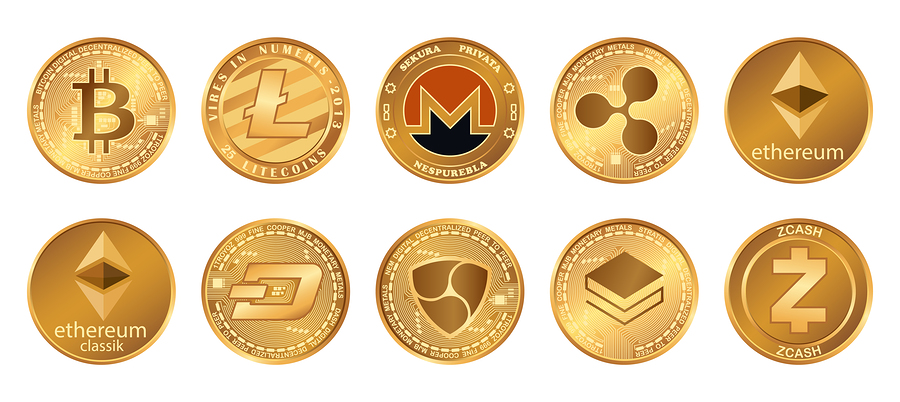
Exchanges are big business in the cryptocurrency sector. With increasing competition from over 500 exchanges and pressure on trading fees from decentralized exchanges and zero-fee trading platforms, exchanges are looking to generate revenue by charging listing fees.
This presents a barrier to entry for many tokens, especially those from small ICO-funded blockchain startups. Just what can startups expect in the way of listing costs today?
How Much Does a Token Listing Cost in 2018?
According to information received by Bitcoin Market Journal, the majority of digital currency exchanges charge a listing fee. The fee, however, varies greatly and is usually tied to the size and popularity of the exchange.
- For small exchanges, the listing fee can be as low as 1 to 5 BTC ($6,000 to $30,000), which is arguably affordable for most blockchain projects.
- To get a cryptocurrency listed on a medium-sized exchange, however, there is a substantial jump in listing fees. The prices that second-tier exchanges charge range from 10 to 50 BTC ($60,000 to $300,000), which is a substantial amount for a startup that managed to raise less than one million during their token sale, for example.
- The top tier exchanges with the largest trading volumes will charge between $1 to $2.5 million for a token listing.
There are some exchanges – small, medium, and large – that genuinely do not charge for token listings. However, these are often also the exchanges on which it is most difficult to get listed as they base their listing decision purely on the merit of the token and the project behind it.
Interestingly, while popular altcoin exchange Bittrex does not charge a listing fee, for example, there has been an incident recently where the exchange asked the Bitcoin Gold developer team to pay a fee for their digital currency to remain listed on the exchange.
According to a statement by Bitcoin Gold, due to the losses that Bittrex suffered during the 51 percent attack that Bitcoin Gold (BTG) suffered in May, Bittrex asked the Bitcoin Gold team to cover a part of the losses – worth 6000 BTG – to “take responsibility for [their] chain.” When the Bitcoin Gold team refused, the exchange informed the involved parties that they will be delisted.
Related Articles:
- Tokens vs. Coins: The Quick Guide for Investors
- Here’s Why the Coins vs. Tokens Debate Matters to the SEC … and Investors
- Equity Tokens on the Blockchain: The Next Step Forward
Why Exchange Listings Matter
For ICO-funded cryptocurrency projects, getting their digital token listed on numerous reputable exchanges can be a pivotal factor that determines the success or failure of the projects.
The more investors have access to a token, the more likely they will buy it. Conversely, the more difficult it is to buy a token, the more likely it is that it will struggle to gain or even maintain its value over time.
There is a positive correlation between the value of a cryptocurrency and the number of exchanges on which it is listed. The more reputable the exchange, the better.
For example, when it was announced that Litecoin was to be listed on leading US cryptocurrency exchange Coinbase, the price of Litecoin (LTC) jumped by over 25 percent and subsequently rallied to a new all-time high in the months to follow.
The same phenomenon has been experienced by other digital currencies and tokens when they were listed on major exchanges, especially those with fiat currency gateways in major markets such as South Korea, Japan, and Europe.
Moreover, having a token listed on reputable exchanges adds credibility and boosts the reputation of a blockchain project as only high-quality projects’ tokens are perceived to be listed on the biggest exchanges.
How to Get Listed
The listing process differs among different exchanges. However, the general approach is similar at most cryptocurrency trading platforms. The key factors are:
- Pristine code and a killer solution to a real-world problem
- Transparency of platform, team members, legal structure, and tech specs
- Not running afoul of securities law
- Possible payment of a listing fee
Firstly, a cryptocurrency project must highlight a degree of quality combined with error-free, well-written code. Blockchain projects that are utilizing the blockchain to tackle real-world challenges in an innovative way and that have a team composed of experienced developers are more likely to have their listing request approved by large exchanges.
Secondly, a cryptocurrency project will need to provide a wide range of information about its platform, digital token, and team members. The required information may include the project’s code (if it is not open-source), identification of the project’s core team members, the legal structure of the company, and technical specifications such as maximum token supply, block rewards, transaction fees, etc.
Thirdly, many exchanges prefer to list tokens that cannot be classified as securities. Hence, tokens that apply for listing may have to pass the “Howey Test.” Some exchanges have this as a prerequisite to ensure they themselves will not run into any trouble with the financial regulator for providing a platform for securities trading without the required licensing.
Finally, even though most exchanges claim to list token on merit, the reality is that the majority of exchanges will require blockchain startups and cryptocurrency projects to pay a listing fee.
The Bottom Line
By and large, exchanges are looking to generate revenue by charging listing fees. If you are looking to list your coin on an exchange, expect to pay:
- $6,000-$30,000 for listing on a small exchange
- $60,000-$300,000 for listing on a medium-sized exchange
- $1M -$2.5M for listing on a high-volume exchange
To learn more about investing in digital assets and the world of new finance, subscribe to the Bitcoin Market Journal newsletter today!

